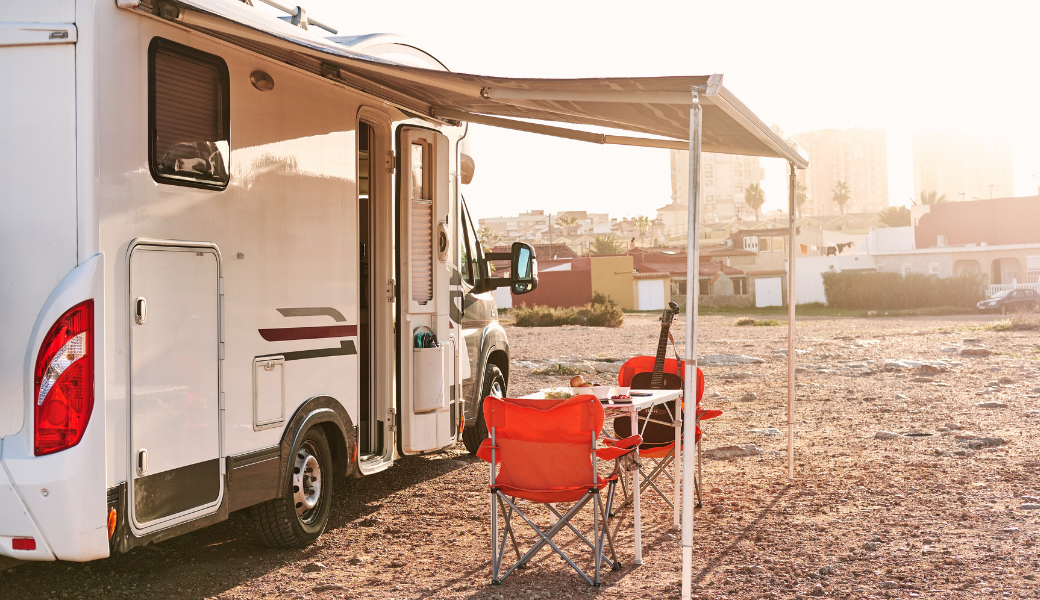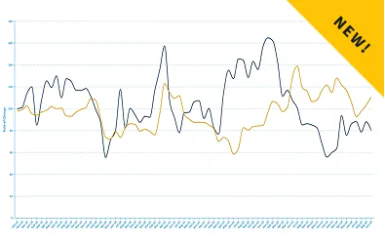Forget A New House – It’s Time To Buy A Campground!

Multiple offers, bidding wars, well-above-asking-price contracts – we hear a lot about these in today’s residential real estate market, but business is just as booming in the campground market.
“I’ve never seen a market like this,” says Mark Whitworth, President & Associate Broker of Parks and Places, who has sold over 150 parks – with a value of $200M – over the past 12 years. The company brokered the sale of 33 campgrounds in 2021 and has already closed on 13 campgrounds in 2022.
“Just like in home sales, everyone wants to sell while the market is hot. But we’re still seeing a lot more buyers than sellers,” he says. “For properties that are priced right and are making money, sellers are getting top dollar.”
Not surprisingly, the parks are selling a lot faster these days, too. Deals that used to take nearly a year are now closing in less than six months, says Whitworth. The buyers range from “mom & pops” to large corporations.
“Interest from couples who love the family business model has remained steady,” he says, referring to both retirees and those in their 30’s and 40’s who want to raise their children in a campground environment. “But we’re seeing a lot more corporate buyers and investment groups now.”
Companies that own apartment or commercial buildings and have suffered during COVID may be seeing campgrounds as a good investment, Whitworth figures. These new buyers range from those who initially sought smaller properties but who are now growing their portfolios, to bigger buyers who are looking for campgrounds with 250+ sites and popular amenities. They’re also looking for park models that can accommodate those who don’t have RVs but who love the ambiance and amenities of campgrounds.
“Multi-park owners are also interested in park models,” he says. “We’ve always worked with these and franchise owners, but there are many more these days.
Blue Water, a Maryland-based real estate development and hospitality company, is an example. The company had 13 campgrounds in 2020, but today owns 29.
“Blue Water Hospitality is one of many hospitality groups tapping into the sizeable, Covid-invigorated demand from vacationers looking to take advantage of the great outdoors,” says Thierry Roch, Senior Hospitality Broker. “While exploring regional backyards and planning cross-country expeditions are nothing new, I expect this trend to continue into the future as campers and RVers now have more places to frequent.”
The simplicity of the campground business model and the potential returns on investment are also driving the boom, according to Frank Rolfe. Rolfe and his partner, Dave Reynolds, are the fifth largest owners of RV and mobile home parks in the U.S., with over $500+ million in assets. Frank owns over 200 properties in 25 states across America and is the founder of RV Park University. The company teaches buyers how to identify, evaluate, negotiate, perform due diligence on, renegotiate, finance, turnaround and operate RV parks.
“It’s simply renting land…it has very high margins and very little management intensity, as well as very predictable cash flows,” he writes in his blog. “RV parks are bought and sold based on only one attribute: income. Unlike the stock market where companies trade shares based on intangible future potential (think Tesla), RV parks are only valued based on current cash flow. That’s as solid an investment foundation as exists in America today.”
Rolfe further explains that the majority of RV parks sell at a cap rate of around 8% to 12%, compared to stocks, which average only around a 3% dividend. RV park purchases are typically leveraged with debt at a rate of around 80% loan-to-value ratio, so they can be bought at five times bigger than capital, while stocks are typically on a 1-to-1 scale.
“That means you can easily hit 20% cash-on-cash returns, which is astounding. And then, on top of that, you have the simple fact that the value of the property rises as you increase the net income, so when you sell the property you get paid a second time with those profits.”
This appeals not only to American buyers, according to Whitford, but also to investors from Canada and Europe, and to lending institutions.
“Over the past three years, lenders have begun seeking us out,” he says. “More are willing to provide loans on RV parks because they see it as a good risk. They’re now approaching us at RV shows.”
According to a recent article by campground expert Jeff Crider, record RV sales are also fueling new construction and expansion of RV parks across the country. Crider documented 54 new campgrounds and the addition of more than 15,000 new RV sites, primarily in Florida and Texas.
Whitworth, who owned a KOA franchise during the worst of times for the RV industry – the early 2000s and 2008 – notes that even the bad times saw 2-3% growth.
“American families love to travel and they love the outdoors!”
Please Sign in to View
Log in to view member-only content.
If you believe you are receiving this message in error contact us at memberservices@rvia.org.

